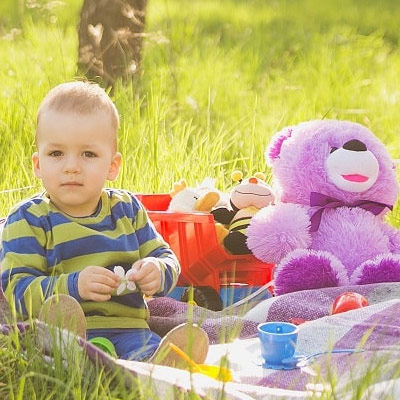Though it is not easily apparent, a lot of children across the country actually have a fear of failure. In fact, some experts even describe it as a “childhood epidemic” because some children feel anxiety when they join a sport, take quizzes, or perform in front of people. As a result, they are unable to give their best, and most are afraid to take risks.
The Cause of this Fear
 The media plays a large part in promoting this “epidemic”. Failure has been defined as being poor, unpopular, powerless, unattractive, and anonymous. From movies to computer games, the financially less fortunate, unsuccessful athletes, and nerds are projected as losers that should be rejected by society. Popular culture has created the fear of failure, and it brainwashed children into thinking that if they fail in even the slightest task, they will be ostracized and become losers.
The media plays a large part in promoting this “epidemic”. Failure has been defined as being poor, unpopular, powerless, unattractive, and anonymous. From movies to computer games, the financially less fortunate, unsuccessful athletes, and nerds are projected as losers that should be rejected by society. Popular culture has created the fear of failure, and it brainwashed children into thinking that if they fail in even the slightest task, they will be ostracized and become losers.
Unfortunately, a lot of parents are making the situation worse by pressuring their children. Believing that they are doing the best for their kids, parents sometimes try to connect their own love with their children’s success. Their kids believe that they will only be loved if they get good grades and do well in sports.
How Children Avoid Failure
Some children decide to miss out on fun and enjoyable activities where there is a risk of failure. They will refuse to be interested in school activities to maintain their social and personal esteem. Parents and teachers will notice that there are certain individuals who are prone to injury, sickness, forgotten materials, or damaged equipment. These are the children who are not interested in anything where embarrassment is a possibility.
Dealing with Failure
In order to cope effectively with this fear, it is essential for adults to let children realize that failure is a part of life. Overcoming it can help a child grow up to be a happier and healthier person. It shows children that even if they did something wrong they can do something to correct their mistakes. It promotes a sense of ownership, accountability, and leadership.











Hi Rosanne,
Thank you for this excellent post. It is so true, and no coincidence, that parents are often as fearful of failure as kids are. We need to lower the stakes on achievement, but people confuse this with lowering the standards. As you point out, failure needs to become the normal part of life (successful life) that it is.
This is the subject of my new book: Freeing Your Child from Negative Thinking: Powerful, Practical Strategies to Build a Lifetime of Resilience, Flexibility and Happiness. I devote an entire chapter to the topic of managing failure, losing, disappointment and jealousy– so that kids will be prepared to handle rather than topple under these normal experiences.
If you’d like to read an excerpt, you can see one at: http://www.freeingyourchild.com.
Thanks again for keeping this important topic on the radar.
Tamar Chansky
Rosanne,
Great article! I truly enjoy your perspective but I would like to vent 🙂
My personal opinion is that parents are continuing the reward phase way too long with their children. For example: children should not be rewarded for doing the things they should be doing like cleaning their room and making the bed. A thank you is in order but not lavish praise.
Also, kids are never told no anymore. We never tell them to not run around and disturb others in stores, restaurants, etc. And when we do it is not followed-up. I have seen many parents do the “count to three” method and they are actually afraid to say the number three. They do not want to follow-up.
All of this lavish praise over drinking their juice and never suffering the consequences of the actions leaves them almost crippled to criticism. I have taught martial arts for years and get these lads quite often.
I do my best to make sure they get challenges that push them but have the likelihood of not succeeding. I want them to learn how to handle failure and move on from it with a lesson learned. It is painful to watch the emotional journey these children face when reality sets in. The whole “it is ok you did your best” is only a band-aid. We need to help them discover why they failed and how they can learn from it.